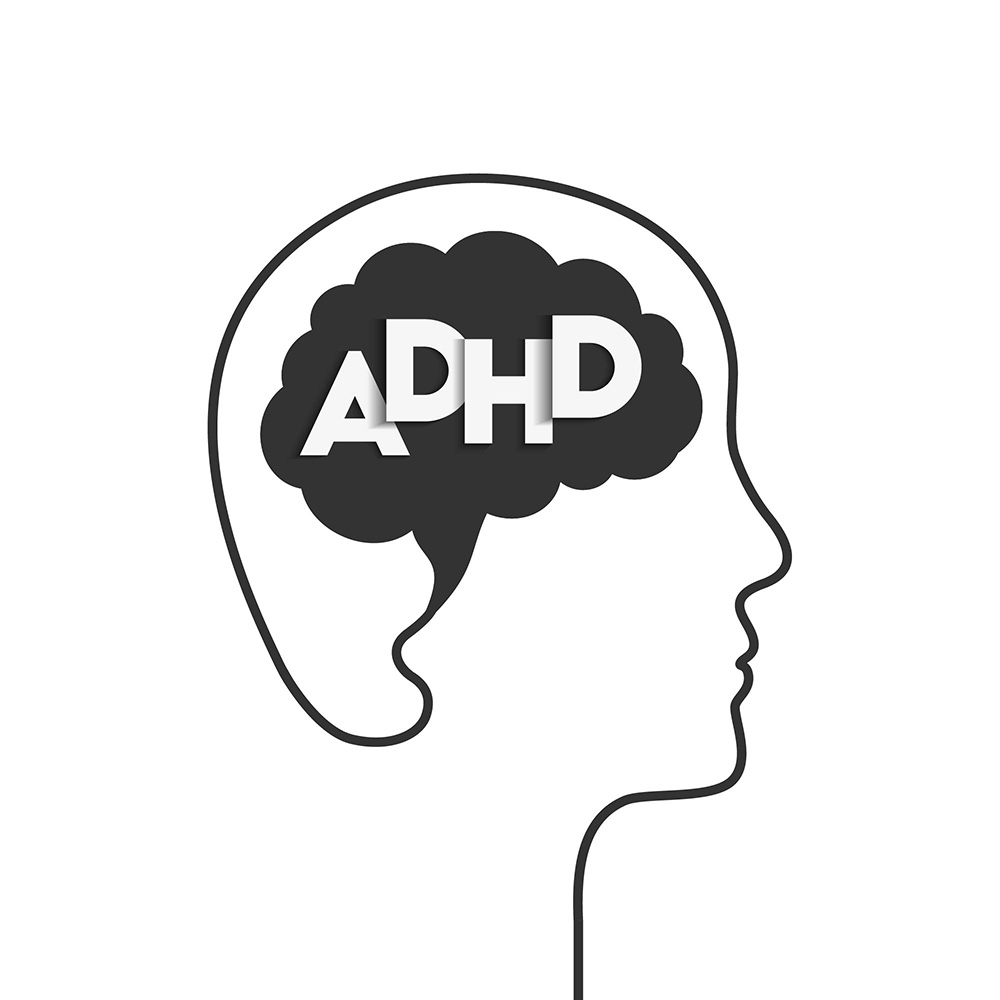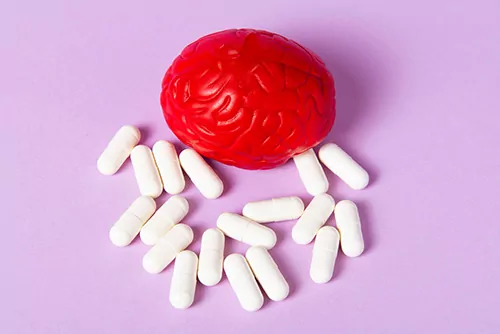Do you find yourself struggling to focus on tasks, constantly misplacing items, or feeling restless and impulsive in different scenarios? These are just a few common symptoms associated with Attention-Deficit/Hyperactivity Disorder (ADHD). If you’ve been wondering whether you might have ADHD, you’re not alone. Many adults ask themselves this same question, and it’s essential to gain a better understanding of the condition. By doing so, you can take the next steps in managing your well-being and potentially seeking the help you need. If you suspect you may have ADHD, we have providers on staff who may be able to help you understand and navigate these symptoms effectively, offering guidance and support tailored to your unique needs.
Below is a quiz designed to provide you with some insights into whether you might exhibit symptoms of ADHD. As a reminder, symptoms of ADHD do not always indicate an ADHD diagnosis, as other mental health diagnoses present with similar symptoms. This quiz is not for diagnosing ADHD, but rather to provide you with more information before seeking treatment for your symptoms with a comprehensive evaluation by a mental health provider.
Let’s first take a look at what it means to have ADHD and how it can develop. ADHD is a neurodevelopmental disorder, which means it develops during childhood. It primarily affects the prefrontal cortex of the brain, which is the location of the brain that deals with attention, organization and control over behaviors. ADHD can develop due to genetic risks, which is why it is commonly seen in family members, as well as birth/childhood negative factors such as low birth weight and exposures to toxins.
Recently, cases of adults being diagnosed with ADHD have increased and it’s unclear if that’s due to more education about the disorder or alternative reasons. Current estimates of individuals with childhood ADHD persisting into adulthood can range from 20% to 60%. However, many other mental health diagnoses can present as ADHD, including mood and anxiety disorders, persistent symptoms after traumatic experiences, and substance/alcohol use disorders. Thus, individuals with symptoms of ADHD may first need to prioritize stabilizing their other mental health symptoms to see if ADHD symptoms are present on their own or were just a result of other diagnoses.
ADHD has three main categories, often referred to as subtypes, based on the predominant symptoms a person experiences:
Additionally, an ADHD diagnosis indicates symptoms have been persistent since childhood and lead to impairment in school, work and/or social functioning. It can also increase the likelihood of using alcohol or substances.
When discussing ADHD, it’s crucial to understand that it frequently occurs alongside other mental health conditions, known as co-occurring disorders or comorbidities. Research shows that up to 80% of adults with ADHD have at least one other mental health condition. These co-occurring disorders can complicate both diagnosis and treatment planning, making it essential to work with healthcare providers who understand these complex interactions.
Common co-occurring mental health disorders with ADHD include:
It’s important to note that these co-occurring conditions can mask ADHD symptoms or make them appear worse. This is why a comprehensive evaluation by experienced mental health professionals is crucial for accurate diagnosis and an effective treatment plan.
How long does an ADHD assessment take?
The initial screening or clinical interview usually takes about 1 to 3 hours. This includes gathering medical history, symptom questionnaires, and discussion of concerns. For adults, a full assessment day can take 4 to 8 hours or may be spread over multiple sessions. This includes cognitive, academic, and psychological tests to rule out other conditions and assess comorbidities.
Can ADHD develop in adulthood?
ADHD traditionally has been considered a childhood-onset neurodevelopmental condition, with symptoms starting before age 12. However, recent research suggests that ADHD symptoms can sometimes emerge in adulthood, leading to the concept of “adult-onset ADHD.
Will I need to take medication if I’m diagnosed with ADHD?
Treatment plans are highly individualized. While medication can be an effective treatment option, it’s not the only approach. Some individuals benefit from behavioral therapy, cognitive strategies, lifestyle modifications, or a combination of these approaches. Your healthcare provider will work with you to determine the most appropriate treatment plan based on your specific symptoms and needs.
How does ADHD present differently in adults versus children?
While children often show more visible signs like hyperactivity, adults might experience more internal symptoms. Adult ADHD often manifests as difficulty with time management, organization, completing tasks, maintaining relationships, and career challenges. The hyperactivity of childhood may transform into inner restlessness or difficulty relaxing in adulthood.
How does ADHD affect relationships and work life?
ADHD can impact both personal relationships and professional performance. At work, individuals might struggle with meeting deadlines, staying organized, or maintaining focus during meetings. In relationships, symptoms like forgetfulness, difficulty with emotional regulation, or problems with time management can create challenges. However, with proper treatment and support strategies, many people with ADHD maintain successful careers and healthy relationships.
What lifestyle changes can help manage ADHD symptoms?
Several lifestyle modifications can effectively support ADHD management. These include establishing consistent daily routines, implementing organizational tools and reminders, maintaining regular exercise and adequate sleep patterns, practicing stress management techniques, creating distraction-free environments, and following a healthy, balanced diet. While these lifestyle changes can be beneficial, they work most effectively when implemented alongside professional treatment and support.
At Eleanor Health, we are committed to assisting you throughout your journey to understand and manage ADHD, especially if it pertains to alcohol and/or substance use. Our dedicated team, including experienced providers, nurses, therapists and peer support specialists, is here to provide expert guidance and personalized support tailored to your unique needs.
Don’t hesitate to reach out to us. We offer comprehensive assessments, treatment options, and resources to help you gain better control over your symptoms, improve your daily life, and thrive despite the challenges ADHD may bring. Your well-being is our priority, and we’re here to support you every step of the way.
 Adult ADHD and Co-Occurring Issues
Adult ADHD and Co-Occurring Issues
 What are SSRIs?
What are SSRIs?
 Medications for Anxiety and Depression: An Essential Medication Guide
Medications for Anxiety and Depression: An Essential Medication Guide